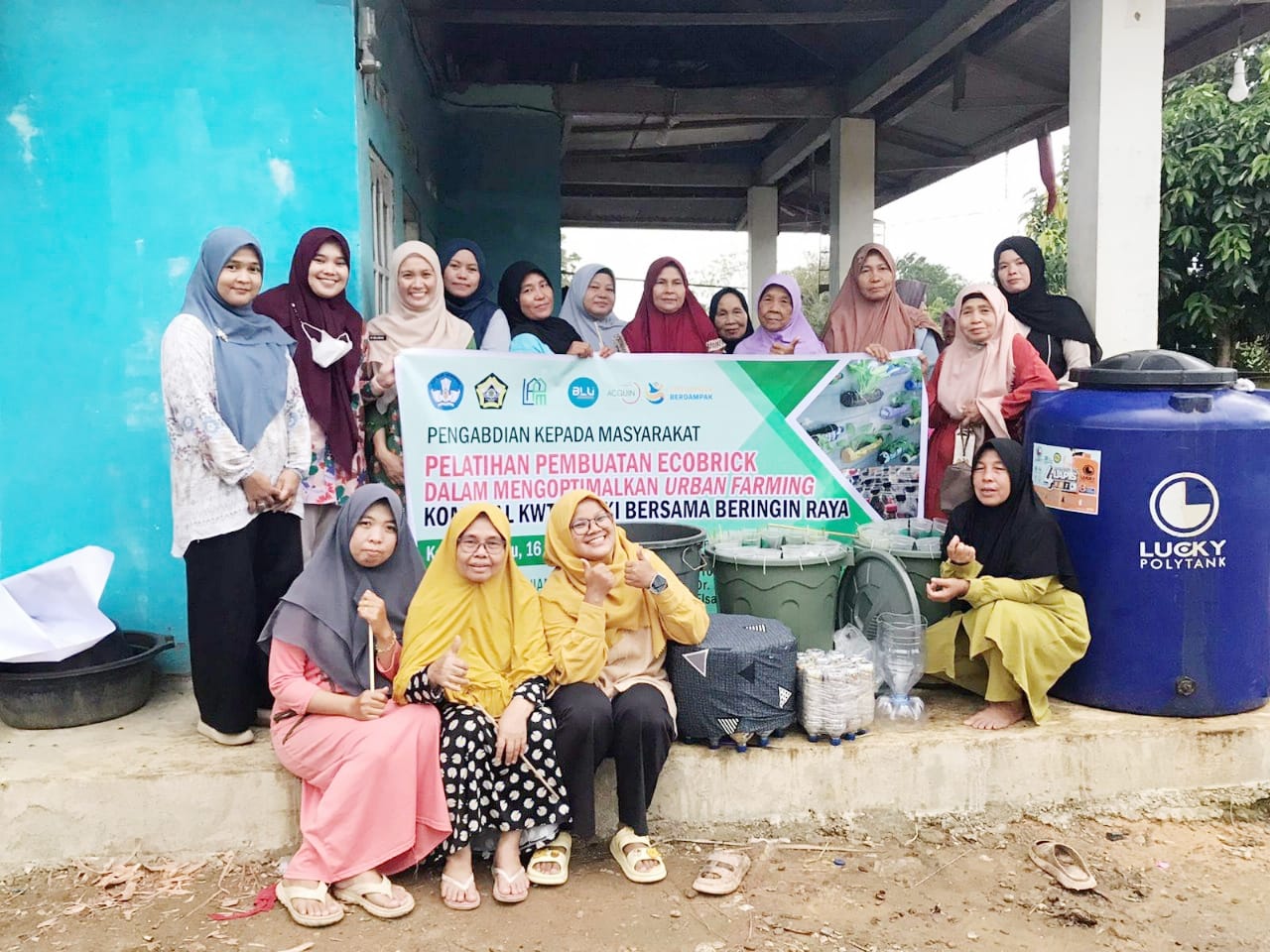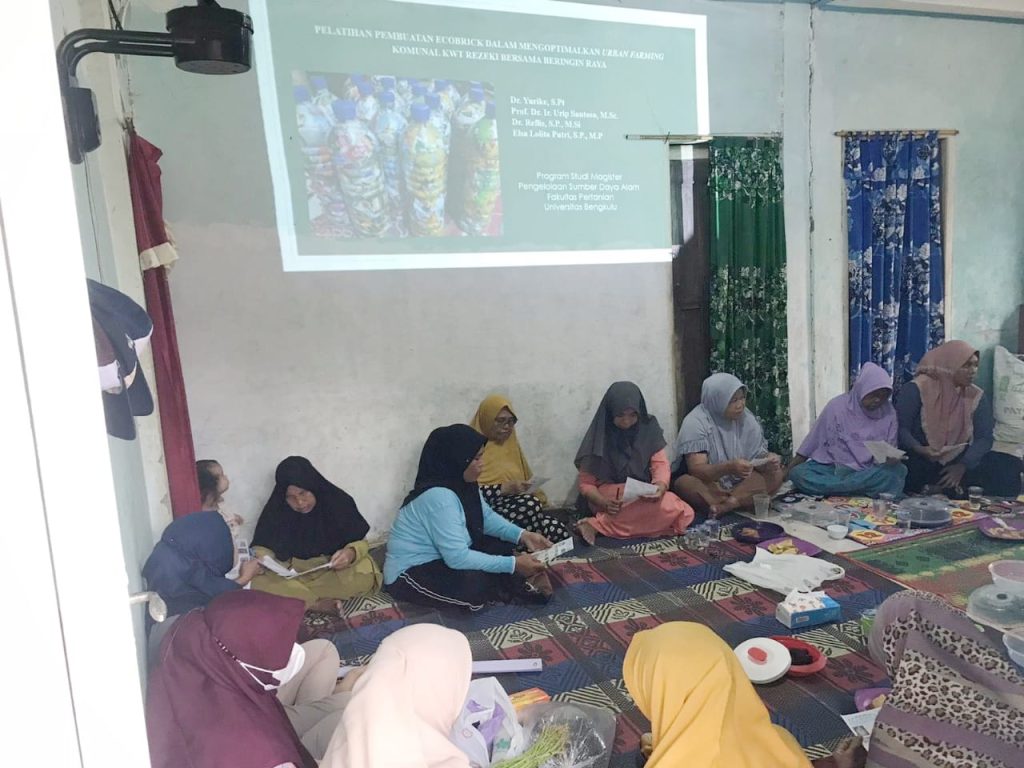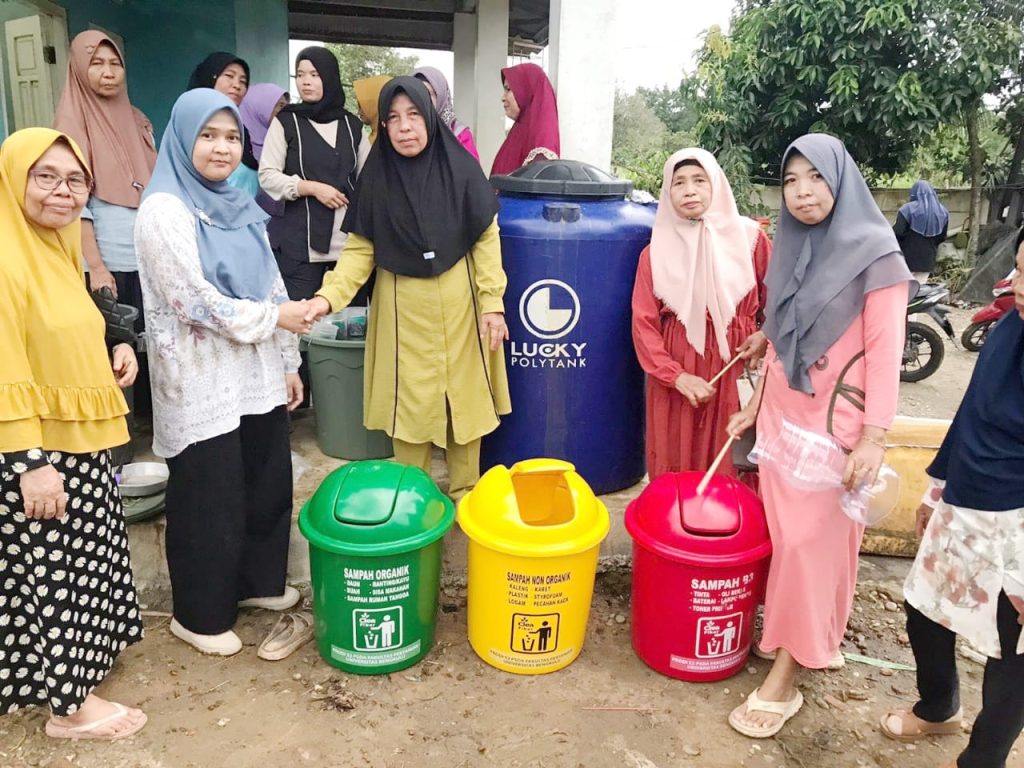
Empowerment of KWT Rezeki Bersama Through Ecobrick Innovation for Sustainable Urban Farming
The team of lecturers from the Natural Resource Management Study Program, Faculty of Agriculture, University of Bengkulu—consisting of Dr. Yurike, S.Pt., Prof. Ir. Urip Santoso, M.Sc., Ph.D., Dr. Reflis, S.P., M.Si., and Elsa Lolita Putri, S.P., M.P.—conducted a Community Service (PKM) program on Sunday, August 16, 2025, with the theme “Ecobrick Training in Optimizing Communal Urban Farming Kwt Rezeki with Beringin Raya.”
The activity took place at KWT Rezeki Bersama, located in Beringin Raya Village, Bengkulu City. The purpose of this program was to provide solutions to two main issues faced by the community, especially the women farmer group, namely the high volume of household plastic waste and the limited agricultural land in urban areas.
Through the Ecobrick-making training, participants were given an understanding of the negative impacts of plastic waste on the environment and were introduced to the concept of Ecobricks. Ecobricks are a technique of filling clean and dry plastic bottles tightly with plastic waste, which can then be utilized as building materials or planting media in urban farming activities.
The activity combined lecture and demonstration methods, where participants not only received material through presentations but also practiced making Ecobricks directly. Through this approach, participants gained new knowledge and skills in independent and creative plastic waste management.

As part of the program, the community service team also handed over three-color trash bins (for organic, inorganic, and residual waste) to KWT Rezeki Bersama. This initiative is expected to help the community sort waste at the source and facilitate the collection of plastic waste used for making Ecobricks.
The socialization activity received a positive response from the community. Participants stated that they gained new insights into waste management and the use of limited land for sustainable agriculture. Furthermore, this activity is expected to become a model of environment-based community empowerment that can be applied in other areas.














